How Valeriia, a 17-year-old Ukrainian, escaped from a Russian re-education camp
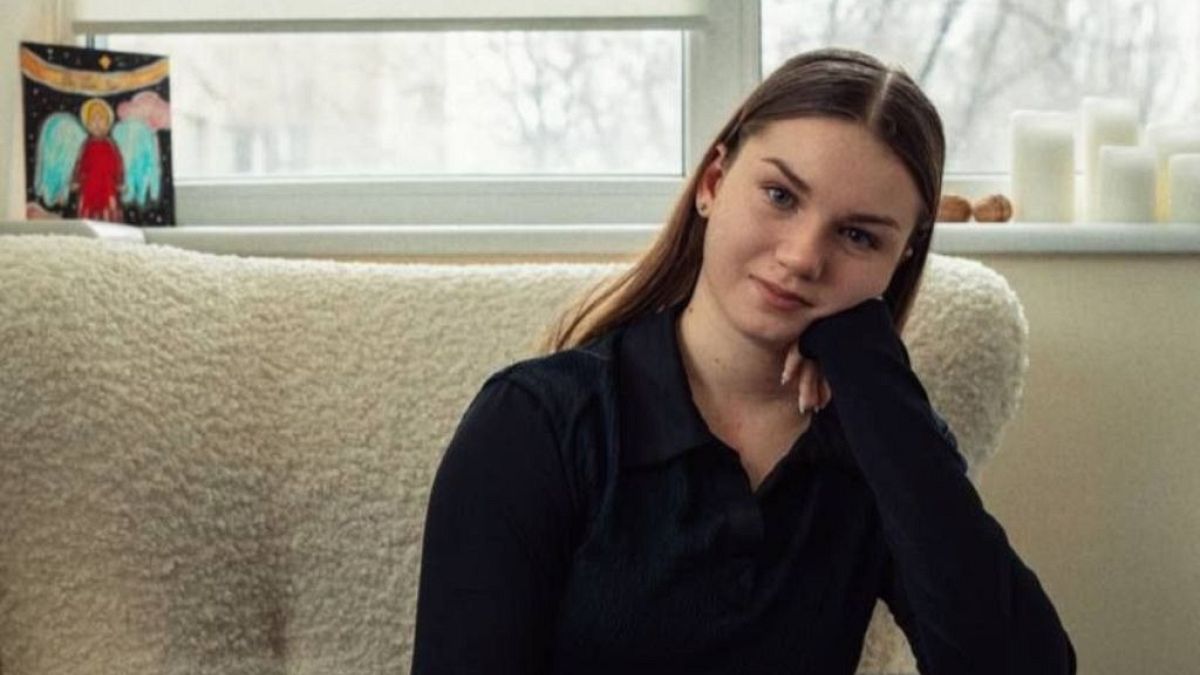
Valeriia, a 17-year-old Ukrainian, was kidnapped from a Russian re-education camp in Crimea. She tells 'Euronews' how she managed to return to Ukraine by her own means.
Before the full-scale invasion, 17-year-old Valeriia was living a normal life as a 10th grade student in Ukraine , preparing for exams and participating in activities such as dance and aerial gymnastics. She lived with a relative since she was 13, after the death of her parents.
Valeriia had a bright future ahead of her : everything was supposed to turn out the way she wanted. When she heard about the large-scale invasion from the news, she found it surreal. Everything changed quickly , and she had a hard time understanding the situation.
Everything changed with the large-scale Russian invasion
Russian troops soon arrived and occupied the southern Ukrainian town of Nova Kakhovka , also his hometown. During a particularly intense period of bombing, she was forced to live without food after Ukrainian supplies ran out, but the situation stabilized when trucks of supplies began arriving from occupied Crimea.
At that time, the Russian military police gradually appeared in the city, located in the Kherson Oblast . It was a quiet period: The explosions did not shake the air .
In October 2022, Russian troops announced an "evacuation" of the children of Nova Kakhovka to occupied Crimea . Valeriia, along with other children, had to gather in the main square surrounded by armed soldiers. Buses took them to the border with Crimea. Upon arrival, the children's passports and documents were confiscated .
"Russia will give you everything"
When Valeriia arrived at a Crimean camp called "Luchystiy," pediatricians examined the children for lice and COVID-19. She remembers that the camp looked like a nursing home , but lacked child-centered services.
In addition, the facilities were surrounded by armed police who constantly monitored the children. The daily routine included singing the Russian national anthem, which she refused to do. The authorities promoted Russian universities and lifestyles, promising that "Russia will give you everything."
For Valeriia, the coercive environment raised concerns about her freedom and future, but the daily schedule was unpredictable, making it difficult to plan. "The camps were re-education camps ," she added.
In his opinion, they served to ensure that the majority of children ended up going to Russia . Therefore, the classes could only be described as propaganda, he recalled, adding that learning Ukrainian at school was not an option.
The program of these fields is called " University Turnover " and works with the support of the Ministry of Education of Russia and the Ministry of Education and Science. Its goal is to (re)educate children between 12 and 17 years old in the temporarily occupied Ukrainian territories in Russian culture and history .
"The forced deportation of Ukrainian children is part of the genocidal policy"
According to Nobel Peace Prize laureate , human rights lawyer and leader of the Center for Civil Liberties , Oleksandra Matviichuk, these camps and their goal of Russifying Ukrainian children is not just a war crime , but part of a larger picture. .
" This war has a genocidal character ," he stated, "Putin has openly said that we Ukrainians do not exist, that we are the same as the Russians. We see these words implemented in horrible practices on the ground since 2014."
Like Valeriia, he also mentioned the deliberate banning of the Ukrainian language and history . "We have been documenting for ten years how the Russians deliberately exterminate locals who act, such as mayors, journalists, civil society actors, priests and artists, for example."
In this sense, the forced deportation of Ukrainian children is part of a policy of genocide, because some are put in re-education camps where they are told that they are Russians and that Russia is their homeland , he told me. "Later, some of them are forcibly adopted by Russian families to be raised as Russians," Matviichuk continued.
As a lawyer, she knows how difficult it is to prove this crime, especially under current standards. "Even if you are not a lawyer, it is easy to understand that if you want to partially destroy or destroy a national group, you have several strategies, such as killing them or changing their identity by force ," she added.
"The forcible abduction of Ukrainian children is part of this broader genocidal policy of the Russian state against Ukraine."
Article II of the Genocide Convention defines genocide as the deliberate act of destroying in whole or in part a national, ethnic, racial or religious group . It excludes, however, political groups and what is called "cultural genocide."
Valeriia decides to pursue her dream of studying medicine
In the countryside, poor food quality often caused stomach problems, and access to medical care was limited. Very young children suffered a lot due to inadequate care and harsh conditions , Valeriia recalls.
In the absence of their parents or guardians, they wandered around unsupervised, enduring the cold without proper clothing. Many fell ill with bronchitis. Outbreaks of diseases such as chickenpox and lice were frequent .
Although the children could use their phones, there was barely any coverage . Valeriia managed to contact a member of her family to ask to be picked up.
Russian authorities consider Ukrainians living in the occupied territories "new Russians."
According to the Crimean Civil Education Center, Alemenda , these types of camps restrict the return of children citing the political stance of the parents . Cases of forced relocation and psychological pressure have been reported, with relatives facing obstacles in reuniting with their children, especially when they are pro-Ukrainian.
When these children express a desire for their parents to visit them, relatives are encouraged to relocate to Russian-controlled territories . Ukrainians living in temporarily occupied territories are considered "new Russians" by the authorities.
Therefore, her relative was able to pick her up, since they lived in occupied territory. After staying in the camp for a total of two months, she moved to the occupied territory of Henichesk, in southern Ukraine.
Valeriia travels alone to Ukraine
After experiencing this terrible medical situation in the countryside, Valeriia decided to pursue her childhood dream of becoming a doctor. As an orphan from an occupied territory , she took advantage of her circumstances in university admissions, and she had Russian and Ukrainian passports.
During his stay in temporarily occupied Henichesk, he chose a university in Odessa and applied online , as he did not want to stay in the territories controlled and occupied by Russia.
From occupied Henichesk, Valeriia undertook the bus journey alone. She passed through several occupied Ukrainian cities, such as the destroyed Melitopol and Mariupol, and then crossed to Rostov, Russia.
With a Russian passport, he crossed the border without problems . In the temporarily occupied territories, possession of a Russian passport is essential to prove ownership of property and maintain access to health and retirement benefits.
If you do not obtain the new mandatory passport by July 1, as required by a new Russian law in the occupied territories , you may be considered a "foreign citizen," risking losing custody, being imprisoned, or worse.
The last border crossing
Continuing through Belgorod and the Sumy region, the journey, facilitated by efficient border crossings, took one day. At the final Sumy border , which is still open to pedestrians but carries strict filtering by Russian guards, Valeriia kept her Ukrainian passport hidden and used her Russian one to cross the border.
The controls were organized in groups from a bus, passports were collected and Valeriia was questioned for traveling alone as a minor and without a guardian.
Aware of the potential risks, he strategically explained his trip, emphasizing that he was passing through Ukraine with no intention of staying .
Valeriia informed the guards that her only intention was to cross Ukraine to pick up her aunt in Europe and bring her back to Russia. She recalled the importance of telling officials what they needed to hear .
At the border, in the midst of their apprehension, they scrutinized his documents and phone, such as his photos, Telegram messages and emails.
Despite Valeriia's previous composure, the situation at the border crossing was very oppressive. As she had hidden her Ukrainian passport from her, she was not forced to undergo a lie detector test , and as she was a minor, she could not legally sign any documents.
While the soldiers with machine guns deliberated among themselves, a guard proposed letting her cross . From the Russian checkpoint, she had to cross fields to reach Ukrainian territory, and when she did so and heard Ukrainian, she was overcome with emotion.
Change of plans?
His initial plan was to go to Odessa to study medicine , but things did not go as planned. Upon his arrival in Sumy, he was given the option of moving to Kiev due to the constant bombing in Odessa at that time. He stayed in Sumy for approximately half a week, during which he underwent thorough examinations and medical tests to ensure his well-being after surviving the re-education camp and occupation.
"Throughout my stay, I was closely monitored by the juvenile police and kyiv representatives. Then, accompanied by the juvenile police, I traveled to kyiv, where I immediately visited the Ombudsman's office," she told me.
He currently lives in kyiv. He initially stayed in a hostel before enrolling at the Kiev Medical Faculty . To maintain a sense of normalcy, she participates in various activities and attends frequent therapy sessions. "I like learning medicine and exploring the city of Kiev. I am grateful for speaking Ukrainian and for the support of my tutor, Olha, who has become like a mother to me."
He met Olha in meetings with a psychotherapist and they established a strong bond.
"In his presence, I can embrace my youth and momentarily forget about the responsibilities of adulthood. I am grateful for the psychological support I have received," adds Valeriia. She is receiving free therapy consultations provided by La Juventud Opina , which are helping her cope with the things she has been through.
What psychological effects do children suffer after living in the occupation?
Upon returning to Ukraine, the children's mental state is deeply influenced by their experiences during the occupation, says Yulya Tukalenko, a psychologist at the Voices of Youth charity foundation.
"Factors such as length of stay, living conditions, age and hardships suffered play an important role," he adds. Deprivation, especially in terms of limited social interaction and restricted movement , is a common challenge that children face. Prolonged exposure to dangerous conditions in which speaking Ukrainian or showing support could be harmful fosters mistrust in others .
According to Tukalenko, the after-effects of these experiences often manifest themselves in various behavioral, emotional and physical symptoms. For example, emotional outbursts, sadness, self-harm, sleep disorders, and digestive problems .
If left untreated, these symptoms can progress to more serious disorders, such as depression , anxiety disorders , and social integration problems . Therefore, timely intervention by trained professionals is crucial to address and mitigate the long-term effects of occupation on children's mental health.
Of the almost 20,000 kidnapped and displaced children, only 400 have been returned
Since Russia's large-scale invasion of Ukraine in 2022, both Ukrainian and international organizations have documented serious violations of children's human rights. Reports detail children deported or forcibly displaced by Russian forces, subjected to re-education and forced adoption .
The Children of War initiative reports that more than 19,500 children have been deported or displaced , and fewer than 400 have been returned. In response, the International Criminal Court issued arrest warrants against President Vladimir Putin and the Russian Federation President's Commissioner for Children's Rights, Maria Lvova-Belova, for deportation of children.
"After 2014 and the large-scale invasion of February 24, 2022, we lost between 15 and 20% of our child population," said Mykola Kuleba of Save Ukraine , a charity that helps families and children affected by the war. These children include those who lost their parents to Russian bombing, along with those who reside in institutions or are in foster care, like Valeriia, who is an orphan. Russia claims that these children lack parental care .
An AP investigation reveals that Russian officials are deporting Ukrainian children without their consent , convincing them that their parents no longer love them, exploiting them for propaganda purposes and placing them with Russian families who grant them citizenship.
This process is simplified if the children are already native Russian speakers. "To resolve the issue of the acquisition of Russian citizenship by Ukrainian children, they granted the right to submit a relevant application on behalf of the child to guardians and directors of children's institutions , including educational and medical ones.
The child's opinion, of course, is not taken into account. Therefore, it is enough to enroll a Ukrainian child in an educational institution or undergo treatment , and the director or chief doctor has the right to apply for the acquisition of Russian citizenship for the child through a simplified procedure," Kuleba explained.
"Being in a Ukrainian city seems like a reward to me, and I deeply appreciate it."
Living in Kiev means continuing to live under frequent air raid alerts . There were no anti-aircraft alarms, since bombing was constant when she lived under occupation.
"No one bothered to turn on the anti-aircraft alarm signal for Ukrainians under occupation. However, there are still moments of uncertainty in kyiv. Despite the risks, you have to continue living life in those moments," says Valeriia.
For the 17-year-old, a lot has changed in the last two years . She added that she does not maintain contact with any of the boys from her camp who chose Russia , not even with her former partners or classmates. For her, " being in a Ukrainian city is like a reward , and I deeply appreciate it."










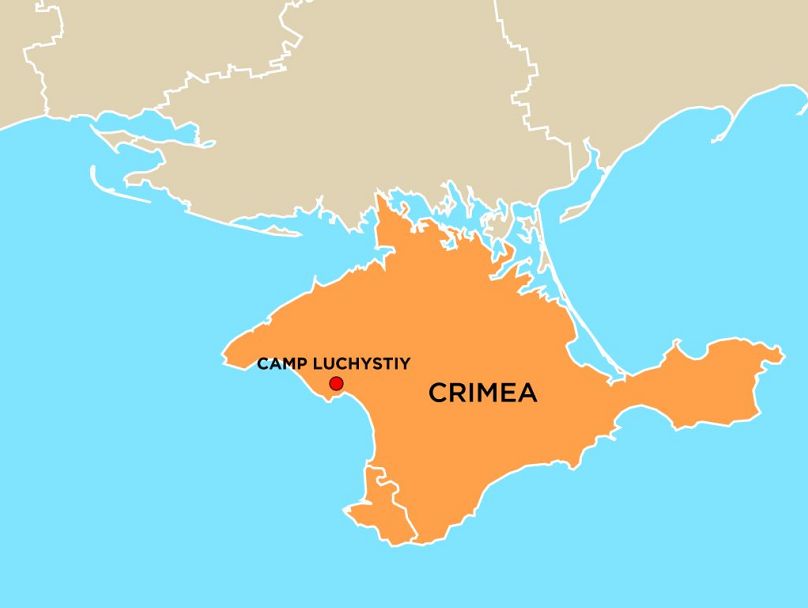
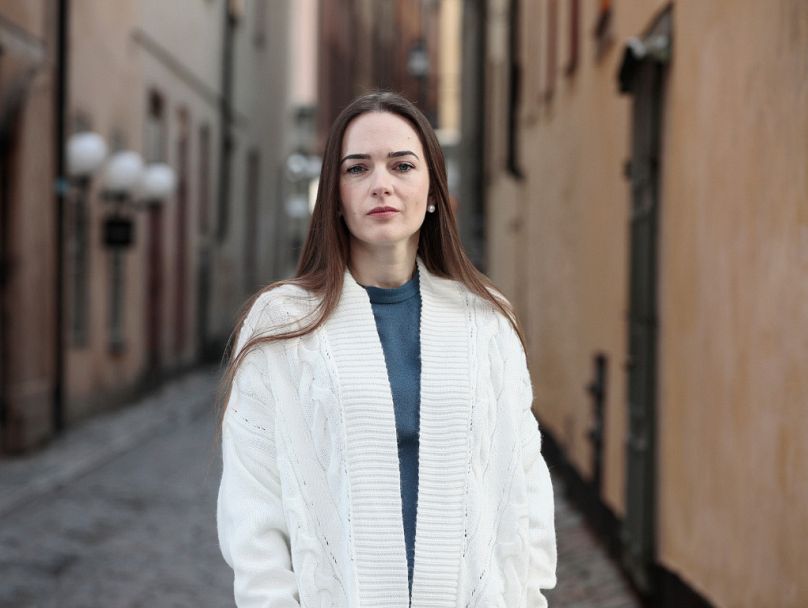
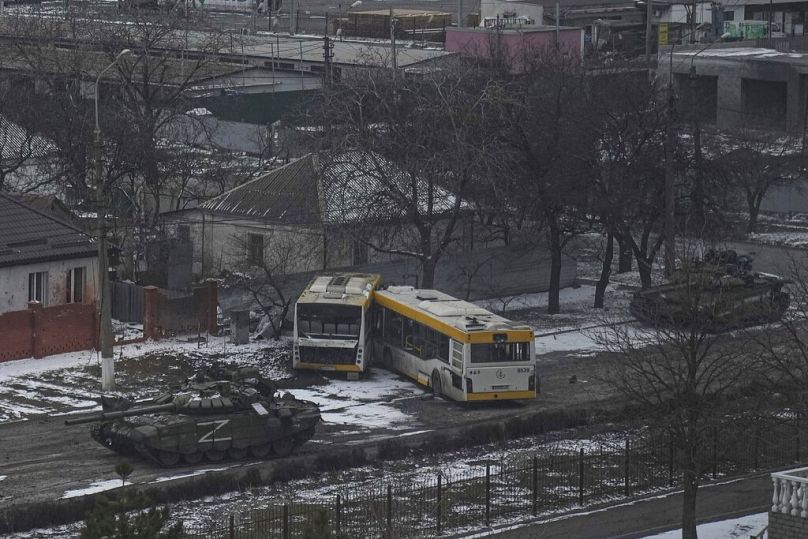
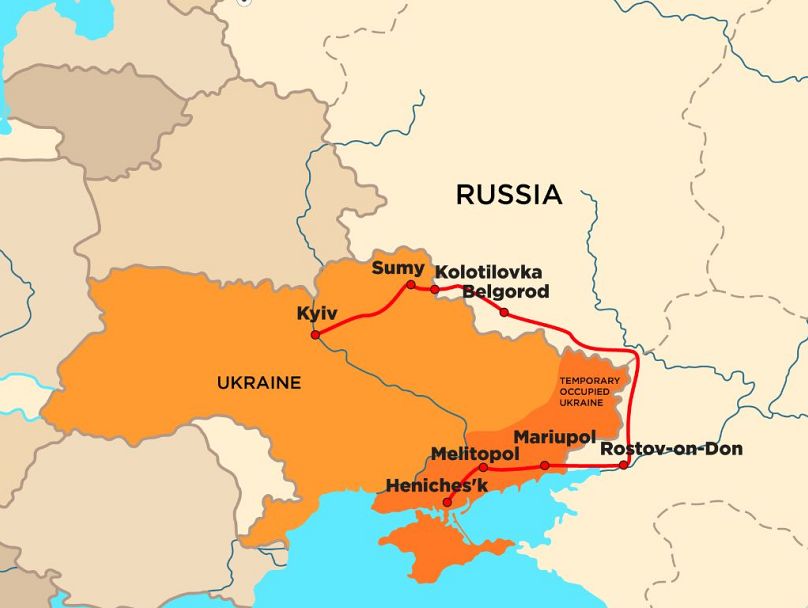
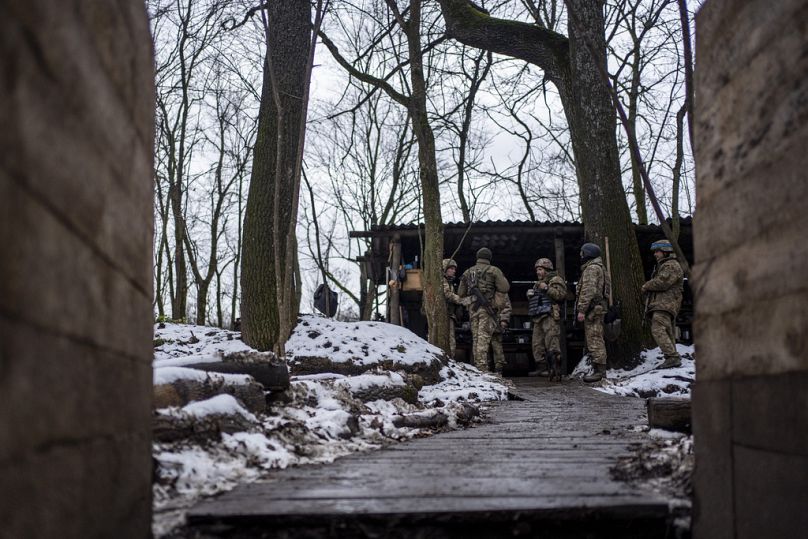
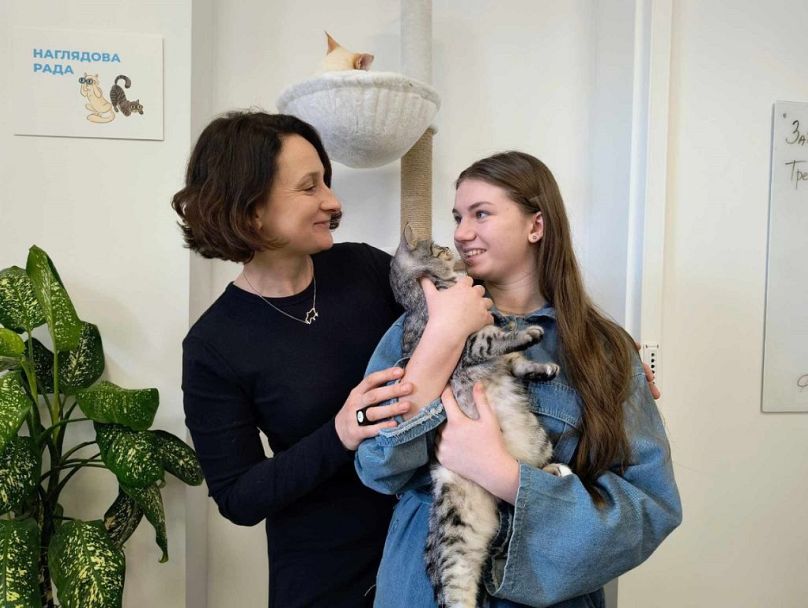
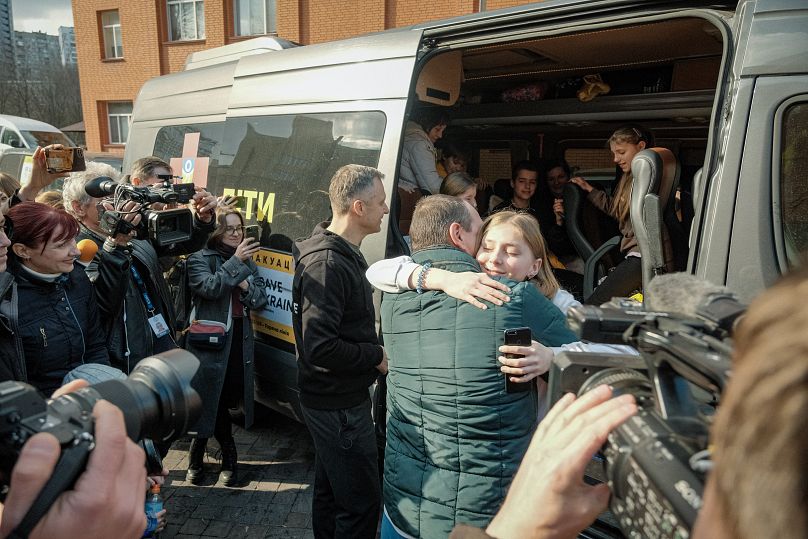
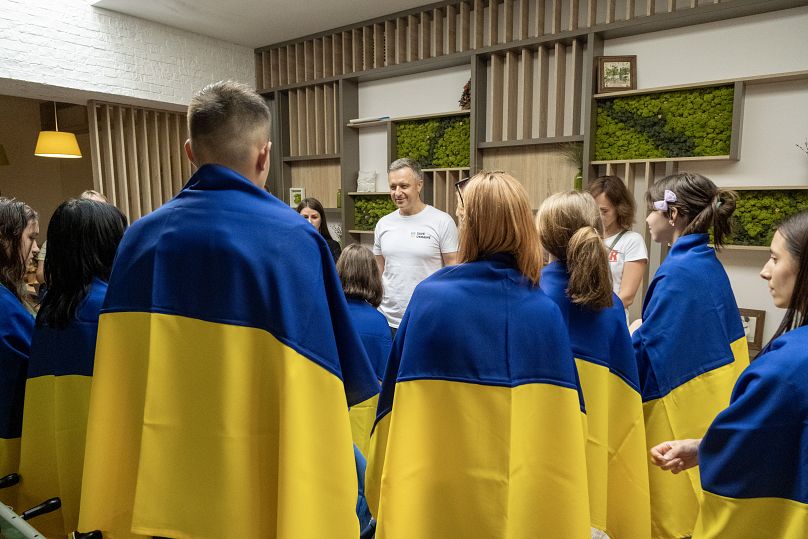
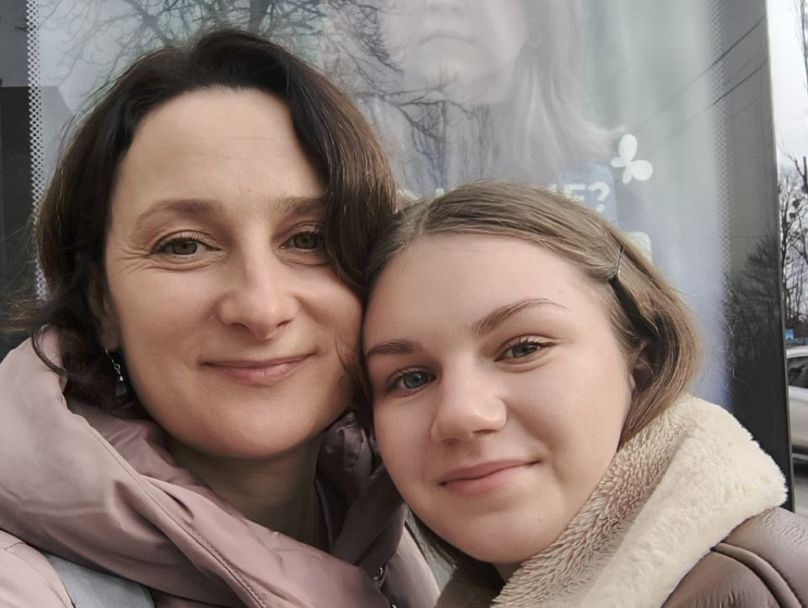


0 Comments
Please don't enter spam link in the comment box